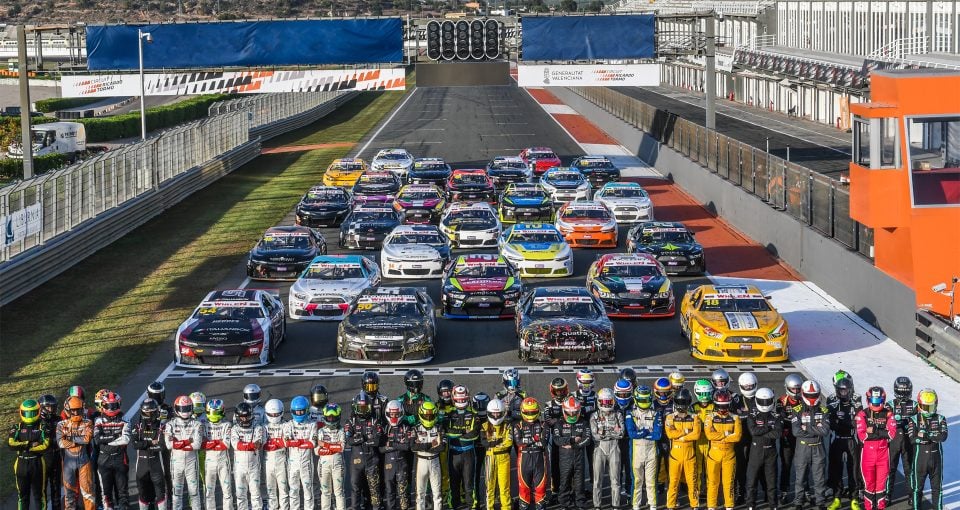Breaking News: NASCAR Reaches Agreement on New Clause Allowing 23XI Racing and Front Row Motorsports (FRM) to Sign Open Team Agreements While Continuing Antitrust Lawsuit Against Sanctioning Body

In a groundbreaking development that has sent shockwaves through the motorsports world, NASCAR has reached an agreement with two of its major teams — 23XI Racing and Front Row Motorsports (FRM) — over a newly created clause that will allow the teams to sign agreements as “open teams” for future races, all while they continue to pursue their ongoing antitrust lawsuit against the sanctioning body. The deal, which was finalized late on Thursday evening, marks a significant shift in NASCAR’s relationship with some of its most prominent independent organizations and could have long-lasting ramifications for the future of the sport.
The antitrust lawsuit, filed earlier this year by 23XI Racing and FRM, alleges that NASCAR’s current team and franchise structure is anti-competitive, favoring a select group of teams while hindering the ability of independent and smaller teams to compete fairly. The lawsuit claims that NASCAR’s rules and business practices, including how it allocates charter agreements and deals with race entries, have been structured in a way that limits opportunities for teams outside the established “big players” in the series.
The newly reached clause, which was the result of months of behind-the-scenes negotiations, allows 23XI Racing and FRM to continue as “open teams,” meaning they can operate independently without being locked into the charter system that governs a majority of NASCAR’s Cup Series entries. The open team designation gives both teams more flexibility in how they approach race entries, sponsorships, and driver lineups, providing them with a level of autonomy that they have argued has been unfairly restricted under NASCAR’s current system.
“This is a monumental step forward, not just for 23XI Racing and Front Row Motorsports, but for the entire NASCAR ecosystem,” said Denny Hamlin, co-owner of 23XI Racing. “It’s about fairness and giving teams the chance to compete on a level playing field. We’ve been saying for a long time that the system in place needs to evolve to allow for more competitive balance, and this agreement is a recognition of that need.”
For 23XI Racing, co-owned by NASCAR driver Denny Hamlin and basketball legend Michael Jordan, and FRM, owned by veteran team owner Bob Jenkins, this agreement represents a victory in their ongoing battle for more equitable conditions within the sport. Both teams have been vocal in their criticisms of NASCAR’s charter system, which they claim disproportionately benefits a small number of established teams with guaranteed entries into races, while leaving others, including open teams, to fight for a spot each week.
Under the new terms of the agreement, both 23XI Racing and FRM can still pursue their lawsuit and challenge NASCAR’s structure, but they are now able to race with more flexibility and without fear of retribution from the governing body. The clause essentially allows them to race as open teams for the remainder of the 2024 season and beyond, but without jeopardizing their legal case against NASCAR.
“This is a win for the teams and for the sport,” said Bob Jenkins, owner of Front Row Motorsports. “It’s about ensuring that NASCAR remains a place where any team with the right resources and talent has the opportunity to compete. The fight for fairness isn’t over, but this gives us the ability to keep racing while continuing to push for changes that will benefit everyone in the long term.”
The move is expected to have ripple effects throughout the NASCAR Cup Series. While the sport’s most established teams may view this as a threat to their dominance, it could also lead to greater innovation and competition in the future. NASCAR has not yet commented publicly on the specifics of the agreement, but the sanctioning body has acknowledged the need for continued dialogue with its teams to address concerns over the current structure.
As 23XI Racing and Front Row Motorsports move forward, all eyes will be on the legal proceedings and whether this new arrangement will set a precedent for future changes in NASCAR’s franchise system. What remains clear, however, is that the sport is on the brink of a potential transformation, one that could redefine what it means to compete at the highest levels of stock car racing.

